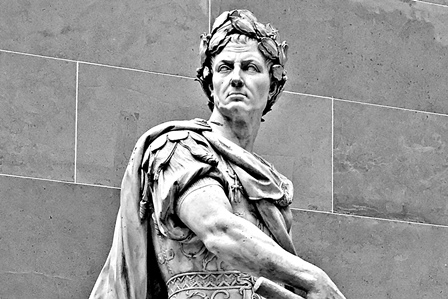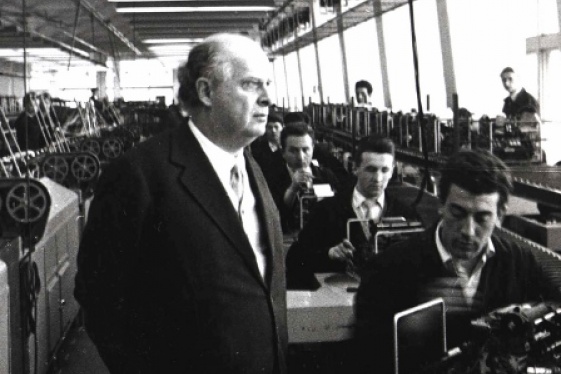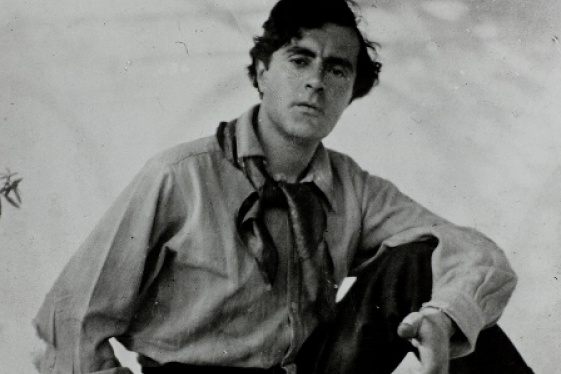

WTI Magazine #54 2015 February, 20
Author : Giovanni Verde Translation by:
The name of Giulio Cesare - Julius Caesar - echoes everywhere in the Western world. The very word "Caesar", over time, has acquired an independent meaning, becoming synonymous with "commander", the charismatic leader of a people.
The figure of Julius Caesar travels through the centuries, handed down through every kind of art: a symbol of strength and courage, cunning and foresight, wisdom and sensitivity. His life is so rich and complex that it is also impossible to tell it in a few lines. A myth, difficult to enclose in a nutshell.
Caesar was born in Rome in the July of 101 or 100 BC by a noble Roman family, the gens Iulia, who had also Romolo (Romulus), the first king of Rome, among their ancestors. Although aristocratic, his family was not particularly rich or influential in the Roman era and this would create many difficulties in the military and political career of Julius Caesar.
The great Roman began his military career with the election for the office of Quaestor of Rome in 69 BC, even though his greatest success during these years was the election as Pontifex Maximus, the highest religious degree to which a Roman could aspire, in 63 BC. His very clear victory would cause panic among the optimates, the aristocrats conservatives, while for the newly elected Pontifex will be a brand new acquisition of prestige, able to assure him the nomination for Magistrate for the following year.
In 60 BC, Julius Caesar signed a strategic alliance with two of the greatest political leaders of the time: Crasso (Crassus) and Pompeo (Pompey). This private arrangement would later called by historians "The first triumvirate"; given the influence of the three signatories, the pact had then remarkable impact on the political life of Rome, dictating developments for almost ten years.
But Caesar would become definitively famous in the collective imagination thanks to his campaigns for the conquest of Gaul, ie the territories that make up much of France today, in the years 58-50 BC. During his epic endeavors, Crassus died in battle in Syria and the Roman Senate, concerned by the increasing power acquired by Caesar, would prefer to appoint Pompey, and not him, as Consul unique in 52 BC.
The reaction of Caesar was tough. After long and tough negotiations, he decided on January 9, 49 BC to cross the Rubicon River, which then marked the border of the Italian peninsula, uttering the famous phrase "Alea iacta east" (the dice is cast), defying the Senate and sparking a civil war.
In that same year Pompey died in Egypt, and so from 49 BC Caesar was appointed dictator of Rome, a position he would hold until his death: the other event that wraps this character in the legend. The day of the Ides of March (March 15th in the Roman calendar) of 44 BC, Caesar fell victim of a conspiracy perpetrated by his closest disciples. He was killed by 23 stabbings, and before to die he accused his fraternal aide Bruto (Brutus), who was among the conspirators, pronouncing the famous phrase "Tu quoque, Brute, fili mi!" (You too, Brutus, son!).
Besides his exploits, his political force and his influence on the destinies of the Roman Empire, the greatness of Caesar is related to his extraordinary ability to condense into a few words historical decisive events, key moments for the entire European continent. His "De Bello Gallico" (Gallic Wars), the work that recounts the campaign of Gaul, remains a symbol of his political and military concreteness, reflected in his dry, clear and decisive style.
Over the centuries, his figure was regarded as a model, an absolute paradigm of political and human feelings of the whole Western civilization. After more than 2000 years, Caesar is still an object of veneration, one of the few characters from Ancient Rome to receive, even today, flowers placed on the ruins of his altar, in the Roman Forum.
You may be interested
-
Great Italians of the Past: A Christmas Eve...
Did you know that Christmas isn’t just a day but it’s a frame of mind?! And it’s to celebr...
-
Great Italians of the Past: Adriano Olivetti
WTI Magazine #79 2016 May 13Author : Giovanni Verde Translation by: An extr...
-
Great Italians of the Past: Alda Merini
WTI Magazine #61 2015 May, 29Author : Giovanni Verde Translation by: A torment...
-
Great Italians of the Past: Alessandro Volta
WTI Magazine #85 2016 November 21Author : Giovanni Verde Translation by: Th...
-
Great Italians of the Past: Altiero Spinelli
WTI Magazine #74 2015 December 11Author : Giovanni Verde Translation by: Th...
-
Great Italians of the Past: Amedeo Modigliani
WTI Magazine #67 2015 September, 4Author : Giovanni Verde Translation by: S...
-
Great Italians of the past: Amerigo Vespucci
Despite being less "famous" than Christopher Columbus, Amerigo Vespucci is the Italian who...
-
Great Italians of the past: Anna Magnani
Anna Magnani was the anti-diva par excellence, the female icon of the neorealism. Among th...










